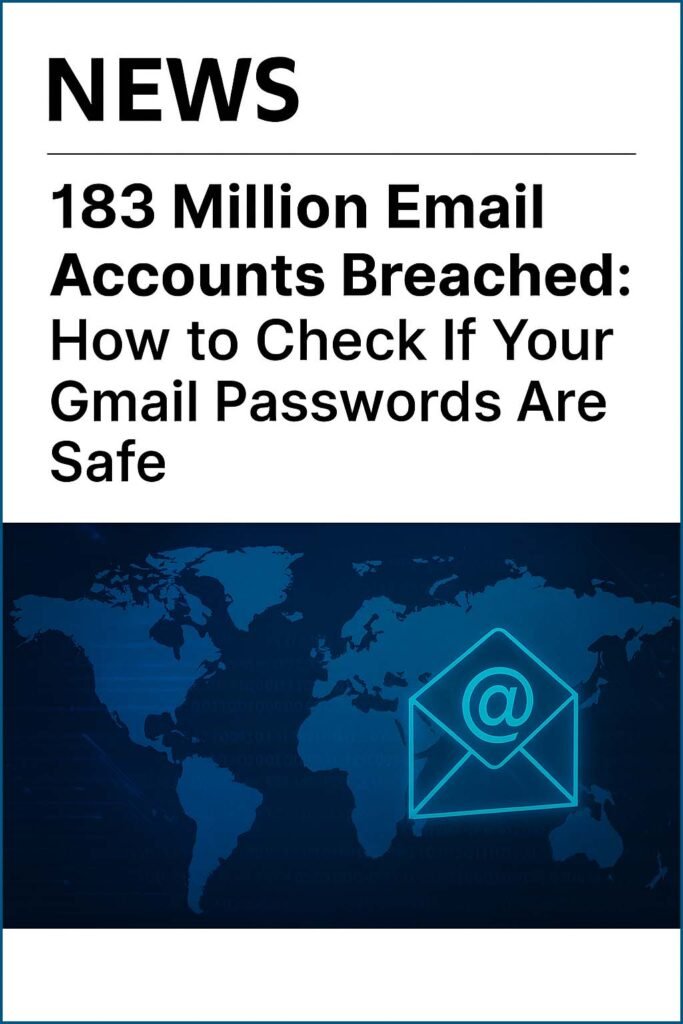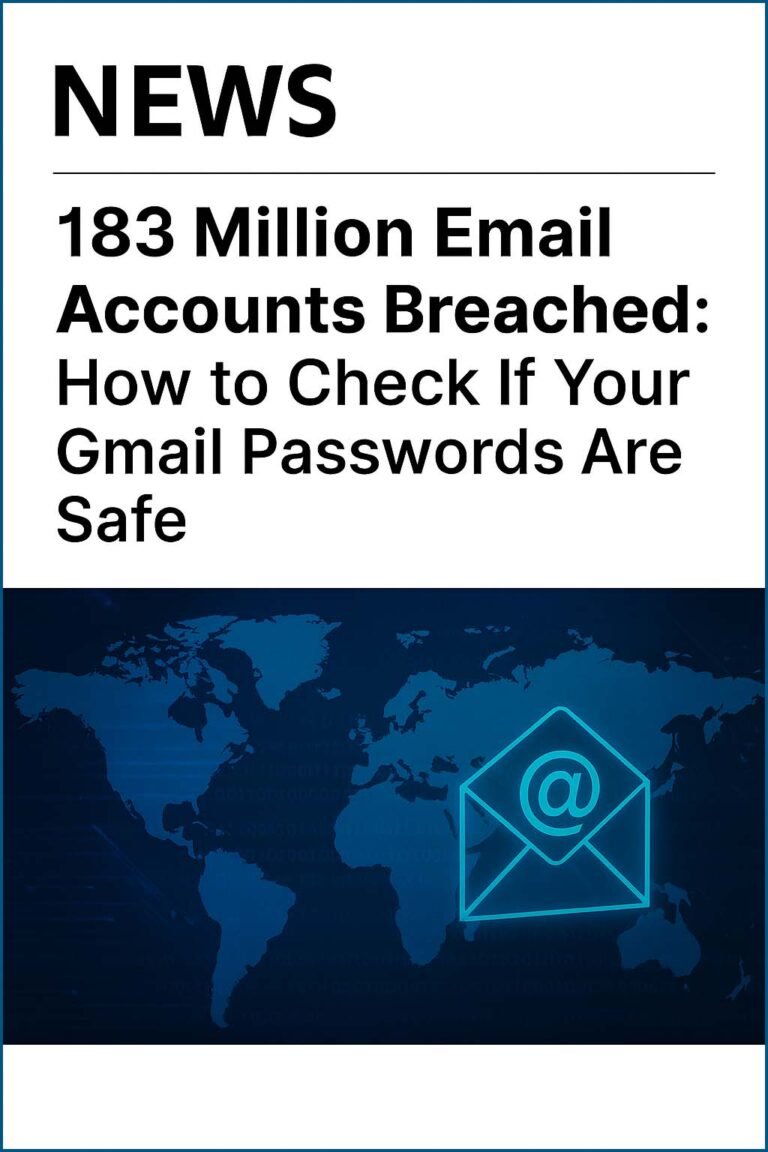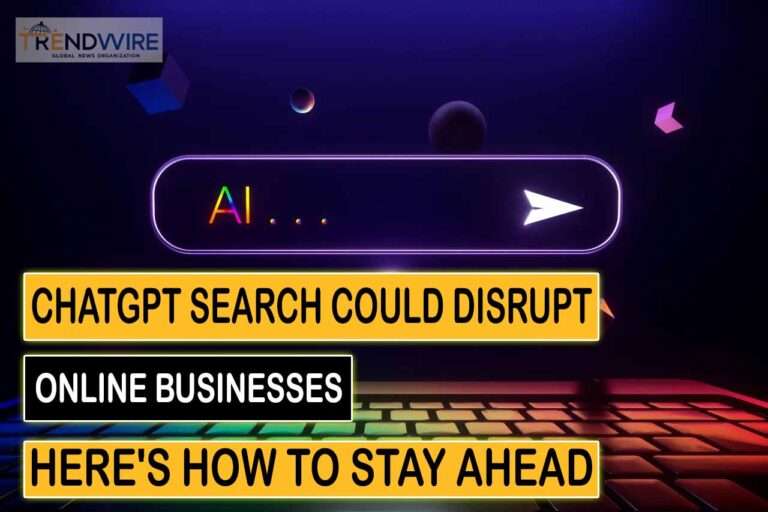183 Million Email Accounts Breached: How to Check If Your Gmail Passwords Are Safe
Sydney/London, October 27, 2025 — A massive data breach has exposed more than 183 million email accounts worldwide, sending shockwaves across digital security communities in both Australia and the UK. Cybersecurity researchers warn that this latest leak may include Gmail passwords, recovery emails, and login metadata, putting millions of users at risk of credential theft and online scams.

Table of Contents
The leaked database, discovered on a well-known hacking forum earlier this week, contains a mix of old and newly compromised credentials from multiple platforms. According to security analysts, it’s one of the largest credential dumps of the year, with email addresses linked to major domains — including gmail.com, hotmail.com, and yahoo.com — appearing in the files.
Why This Breach Matters for Gmail Users
Gmail remains the world’s most widely used email service, with over 1.8 billion users globally. Experts say the exposure of gmail passwords could have serious implications for both individuals and businesses — especially as cybercriminals often reuse stolen credentials for phishing, identity theft, and financial fraud.
“Even if your Gmail account wasn’t directly hacked, the reuse of old passwords across multiple sites can expose you to serious risk,” warns Liam O’Connor, a cybersecurity analyst at the University of Sydney. “Most people don’t realize how interconnected their digital identities really are.”
In recent years, credential stuffing attacks have skyrocketed — where hackers use leaked usernames and passwords to break into multiple accounts automatically. For example, if you used the same Gmail password for a shopping or streaming account that was breached, your Gmail could be next in line.
How to Check If Your Gmail Password Was Leaked
If you’re worried that your Gmail passwords might be among the 183 million exposed accounts, here’s what you should do immediately:
1. Use Google’s Password Checkup Tool
Google offers a free built-in feature that checks whether your passwords appear in known data breaches.
- Go to passwords.google.com
- Sign in to your account.
- Click “Check passwords” to run a full security scan.
If any of your credentials were part of a leak, Google will prompt you to change your password immediately.
2. Try “Have I Been Pwned”
Visit haveibeenpwned.com — a trusted global database of known breaches.
Enter your email address, and it will show if it appears in any known data dumps (including the latest one).
3. Enable Two-Factor Authentication (2FA)
Even if your Gmail password is safe now, enabling 2-Step Verification ensures that hackers can’t access your account without your phone or secondary device.
4. Change Reused Passwords Immediately
If you’ve ever used your Gmail password for other services (banking apps, social media, or e-commerce accounts), change them all now. Hackers rely on password reuse to multiply the impact of one breach.
How the 183 Million Email Breach Happened
Cybersecurity firm Hudson CyberWatch, which first identified the breach, reported that the leaked data came from a collection of previously compromised platforms combined with freshly harvested credentials obtained through phishing and malware attacks.
The data was reportedly uploaded in a compressed file format on a dark web forum known for trading stolen information. Early analysis suggests that the leak includes:
| Data Type | Details |
|---|---|
| Email Addresses | 183,124,789 unique records |
| Passwords (hashed/plaintext) | ~72 million visible combinations |
| Country of Origin | Users from over 100 countries, majority from the US, UK, and Australia |
| Platforms Involved | Gmail, Yahoo, Hotmail, Outlook, Zoho, and enterprise domains |
What Security Experts Are Saying
UK’s National Cyber Security Centre (NCSC) and Australia’s Cyber Security Centre (ACSC) have both issued warnings urging users to adopt strong, unique passwords.
In a joint advisory, the agencies said:
“Users should assume that any reused or weak password is compromised. Password managers and two-factor authentication remain the best line of defence.”
Cybersecurity consultant Emma Lewis, based in Melbourne, added:
“This breach is a reminder that even big tech platforms like Google rely on users’ password hygiene. Gmail passwords need to be changed regularly — not because Google’s been hacked, but because users’ old credentials are circulating online.”
What To Do If You Suspect Your Gmail Is Compromised
If you notice unusual login activity — such as emails sent without your knowledge or password recovery alerts — take these immediate actions:
- Go to Gmail Settings → Security → Manage your Google Account.
- Review your Recent security activity and Devices list.
- Sign out from all devices you don’t recognize.
- Change your password to a strong combination (mix of uppercase, lowercase, numbers, and symbols).
- Turn on Login Alerts so you’ll be notified of future suspicious sign-ins.
Protecting Your Gmail Passwords Going Forward
To safeguard your Gmail and other accounts:
- Use a password manager (e.g., Bitwarden, 1Password, or Google Password Manager).
- Avoid using the same password for multiple accounts.
- Don’t click suspicious links or attachments — phishing remains the #1 attack method.
- Regularly review your Gmail’s Security Checkup dashboard.
The Bottom Line
The 183 million email account breach is another wake-up call in the digital age. While it’s not confirmed that all Gmail accounts were directly compromised, experts stress that the risk of reused Gmail passwords spreading across multiple platforms remains dangerously high.
In a world where your email is the key to your financial and personal identity, the best protection is vigilance — and a strong, unique password.
Key Takeaway
If your Gmail password hasn’t been changed in the last six months — do it now. It’s the simplest, most effective step to keep hackers locked out.
Follow Us on Social:
Subscribe our Newsletter on Electrical Insights to get the latest updates in Electrical Engineering.
More Recent News
#gmailpasswords, #databreach, #emailsecurity, #cyberattack, #gmailhack, #passwordleak, #privacyprotection, #onlineprivacy, #cybersecuritynews, #hackalert, #gmailaccounts, #internetsecurity, #protectyourdata, #australianews, #uktechnews










